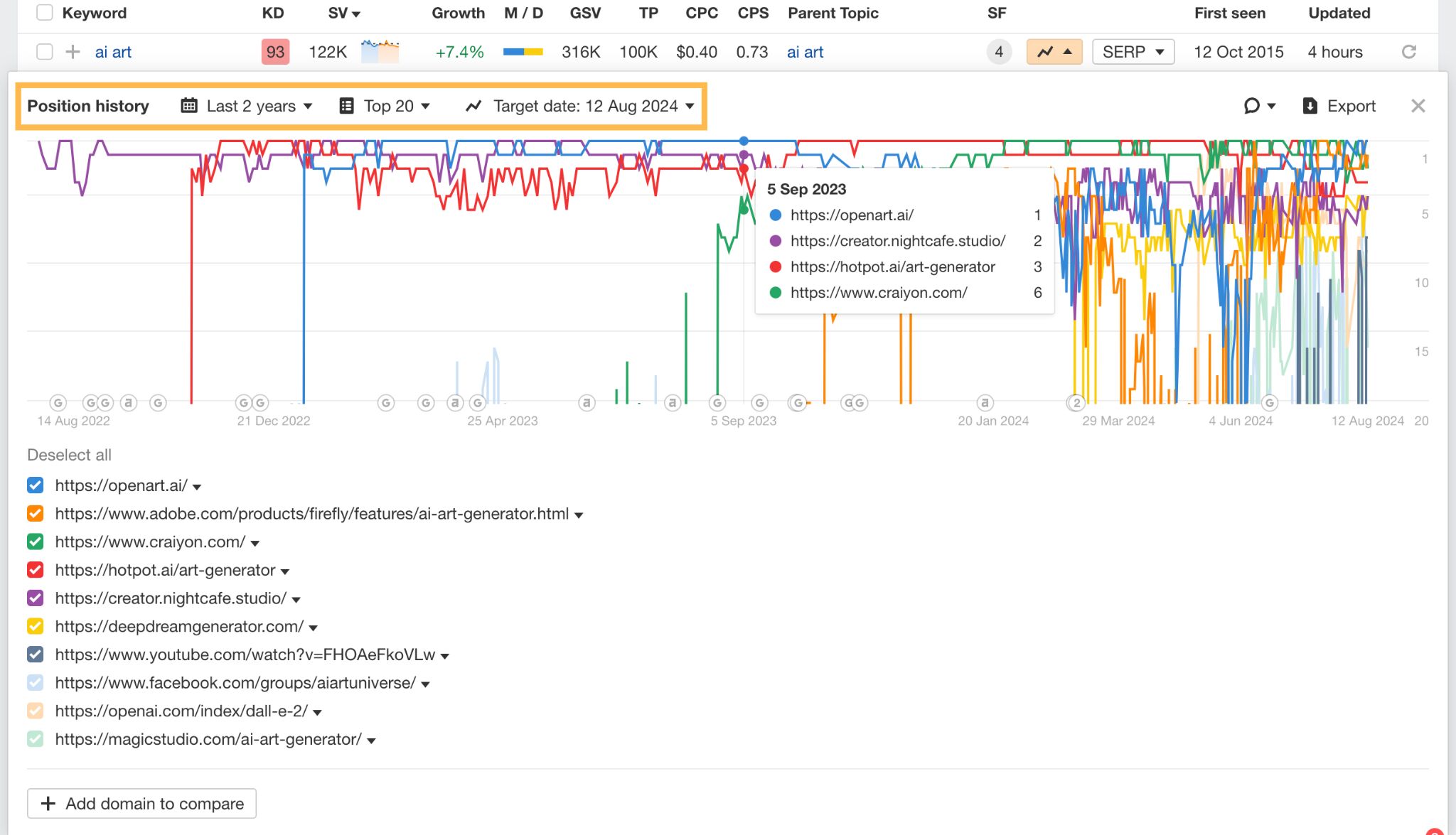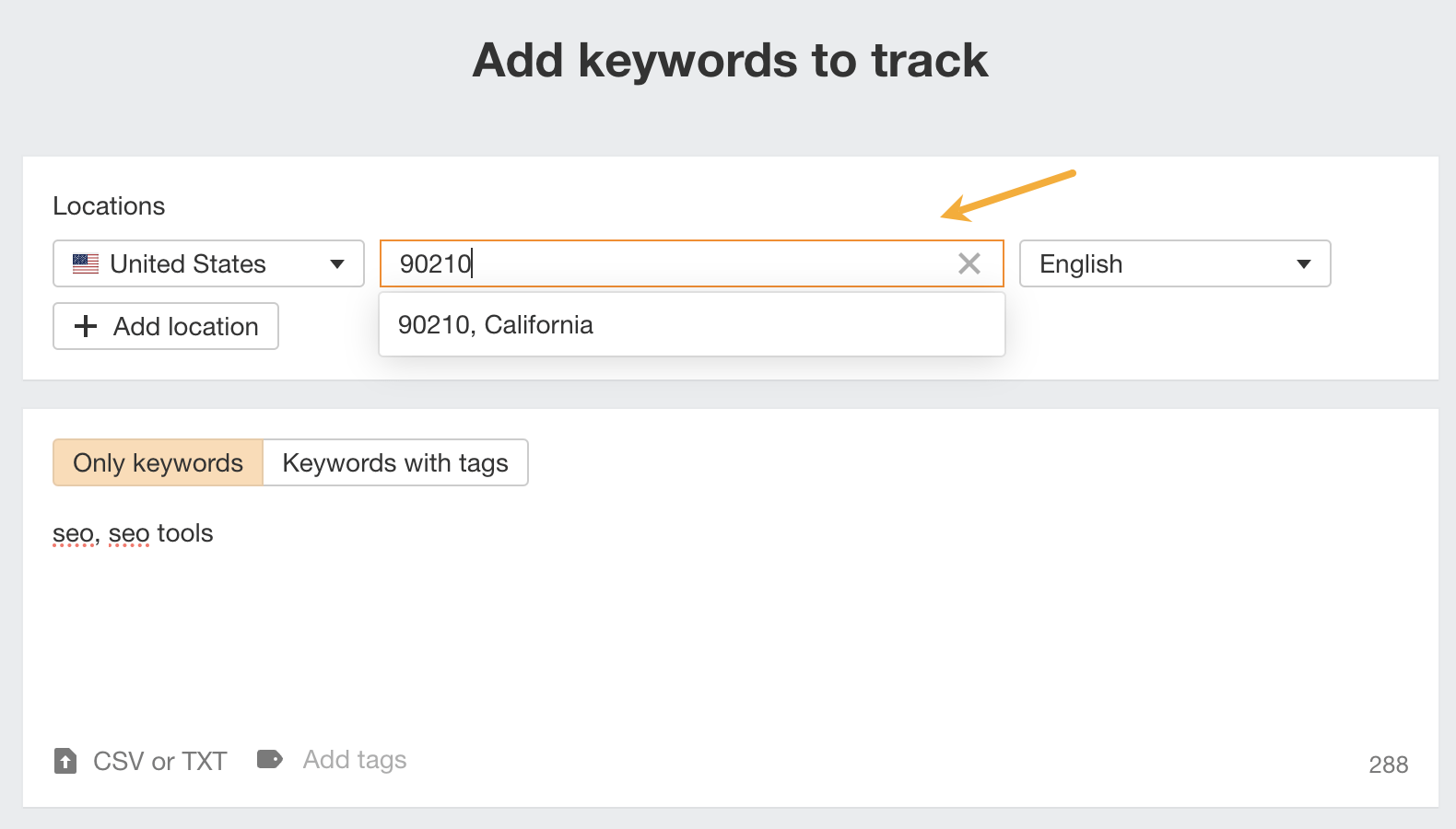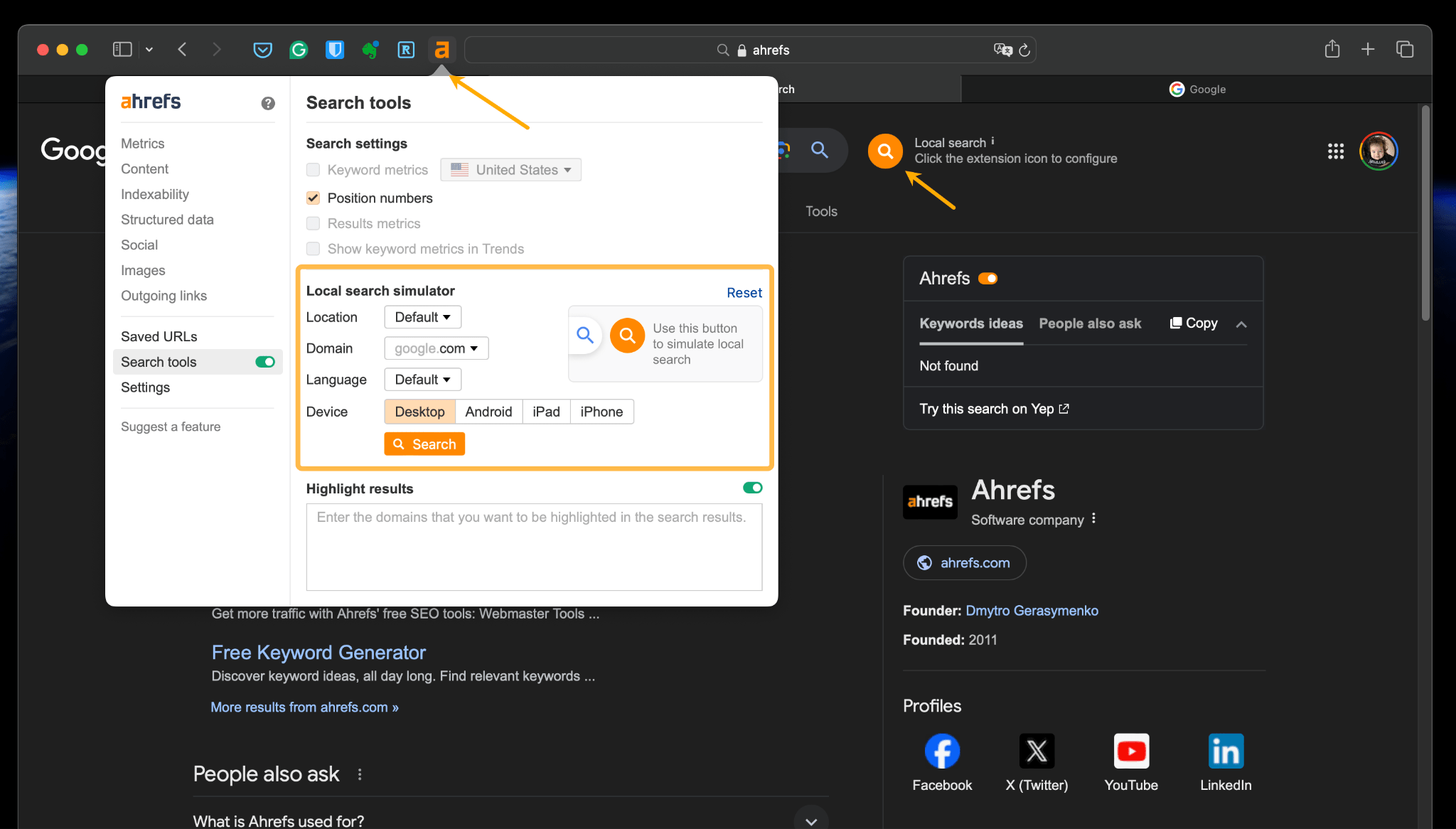Have you ever wondered how some websites always seem to pop up first when you look for something online? It's not magic, honestly. There is a whole world behind those search results, and businesses put a lot of effort into making sure they show up right where you are looking. Getting found by people who need what you offer is a big deal for any business trying to make a mark on the internet, you know.
The internet, in a way, feels like a huge city, with countless shops and services. If you have a shop, you want it to be on the busiest street, right? The same idea goes for your website. When someone types a question or a few words into a search engine, like Google, they see a list of websites. That list is what people in the business call a Search Engine Results Page, or SERP for short. Knowing where you stand on that list is, in some respects, a pretty big piece of information for anyone with an online presence.
So, how do businesses keep tabs on where they show up on these lists? They use something called SERP tracking. It's a way to watch and see how well their website, or specific pages on it, are doing for certain words people type into search engines. This helps them understand if their efforts to get noticed are working, or if they need to try something different. It's really about getting a clear picture of your spot in the online world, and what your competitors are doing, too.
Table of Contents
- What is SERP Tracking Really About?
- Why Do Businesses Care About What is SERP Tracking?
- How Does What is SERP Tracking Work?
- What Kinds of Information Can You Get From What is SERP Tracking?
- Is What is SERP Tracking Just for Big Companies?
- What are the Benefits of Doing What is SERP Tracking?
- What Challenges Might You Face with What is SERP Tracking?
- How Can You Start With What is SERP Tracking?
What is SERP Tracking Really About?
At its core, SERP tracking is about checking your website's position on search engine results pages. Think of it like a daily report card for your online presence. When someone looks for something, they type words into a search engine. These words are often called keywords. Your website might have content that matches those keywords. When it does, the search engine decides where to place your website in the list of results. SERP tracking simply keeps an eye on that placement for you. It tells you if you are at the top, somewhere in the middle, or perhaps further down the list. This kind of information is, basically, very important for anyone trying to get found online.
It's not just about seeing one position, though. SERP tracking lets you watch many keywords at once, and it can even show you how your position changes over time. So, if you make some changes to your website, you can see if those changes helped you move up or down the list. This helps you figure out what works and what doesn't. It's a bit like watching a garden grow; you want to see if your efforts are making the plants healthier, right? This system gives you that kind of feedback, honestly.
This tracking often involves special computer programs or online services that do the heavy lifting for you. You tell them which keywords you care about, and they go out and check the search engines for you, reporting back on where your website stands. It saves you from having to type in every keyword yourself, every single day, which would be a pretty big chore. These tools are pretty clever, and they make keeping tabs on your online spot much simpler.
- Bryce Dallas Butt
- Skiniest Person In The World
- Mika Abdalla Net Worth
- What Is The Symbol For Euro
- Tom Hopkins Net Worth
Why Do Businesses Care About What is SERP Tracking?
Businesses care a great deal about what is SERP tracking because it directly affects how many people find them. If your website is on the first page of search results, many more people are likely to click on it than if it's on the tenth page. Most people, you know, don't look past the first few results. So, a higher position means more visitors to your website, and more visitors often mean more potential customers or readers. It's a straightforward connection, really.
Another reason businesses pay attention to this is to keep an eye on their competition. If you know where your competitors are showing up for important keywords, you can adjust your own plans. Maybe they are ranking higher than you for a keyword that brings in a lot of business. With SERP tracking, you'd know that, and then you could work on improving your own content or website to try and get ahead. It's a way to stay competitive, essentially, and make sure you are not left behind.
It also helps businesses understand what their audience is looking for. When you track keywords, you learn which words people are using to find things related to your business. This can give you ideas for new content, products, or services. If a lot of people are searching for something you don't currently offer, but could, that's a pretty good signal. It's like having a direct line to what your potential customers are thinking, so to speak.
How Does What is SERP Tracking Work?
So, how does this whole SERP tracking thing actually happen? Well, it starts with you telling a tracking tool which keywords you want to watch. These are the words or phrases that people would type into Google or Bing to find a business like yours. For instance, if you sell handmade jewelry, you might want to track "unique silver earrings" or "custom beaded necklaces." You also tell the tool which website you want to track, naturally.
Once you set it up, the tracking tool then goes to work. It acts like a person searching on Google, but it does it very quickly and many times over. It checks the search results for each of your chosen keywords, noting where your website appears in that list. It does this regularly, perhaps every day or every few days, to keep the information fresh. This automated process is what makes SERP tracking so helpful, as a matter of fact.
The tool then collects all this position data and puts it into easy-to-read reports. These reports often show you graphs and charts that tell you if your positions are going up, staying the same, or going down. You can see how you compare to your competitors, too, if you've added their websites to your tracking list. This way, you get a clear picture of your online standing without having to manually check everything yourself, which would be, quite frankly, a huge time sink.
What Kinds of Information Can You Get From What is SERP Tracking?
When you use a SERP tracking system, you get a lot of useful details that help you make smart choices for your website. The most obvious piece of information is your website's position for each keyword you are watching. This tells you exactly where you stand in the search results. But it's more than just a number. You might also see how many people click on your listing when it appears, which is called the click-through rate. This helps you figure out if your title and description are catchy enough, you know.
You can also find out which of your pages are showing up for which keywords. Sometimes, a search engine might show a page you didn't expect for a certain search term. This can give you ideas about how to improve that page or create new content. It's about seeing what the search engines think your pages are about, and then making sure that lines up with what you want, essentially.
Many tracking tools also let you see who your main competitors are for specific keywords. You can see their positions, and sometimes even get an idea of what they are doing to rank well. This kind of competitive intelligence is very valuable. It helps you spot opportunities and potential threats. You can learn from what others are doing, and then try to do it better, or differently, to get ahead, too.
Some systems even show you the search volume for keywords, which means how many times people search for that word or phrase in a month. This helps you decide which keywords are worth putting more effort into. There is no point in trying to rank for a keyword that hardly anyone searches for, is there? So, knowing the search volume helps you pick your battles, so to speak, and focus on what truly matters for getting visitors.
Is What is SERP Tracking Just for Big Companies?
You might think that something like SERP tracking is only for very large businesses with big marketing budgets, but that's not the case at all. In fact, it's something that can help almost any size of business or even individuals who have a website. If you have a small local shop, a blog about your hobbies, or a service you offer from your home, knowing where you stand in search results is very helpful. It's about getting found by the people who are looking for what you do, regardless of your size, you know.
For smaller businesses, SERP tracking can be even more important because every visitor counts. They might not have the brand recognition of a big company, so showing up high in search results is a key way for them to get new customers. There are many tools available, some even free or very low cost, that can help smaller players keep an eye on their positions without breaking the bank. So, it's quite accessible, actually, for almost anyone with an online presence.
Even if you just have a personal blog and want more people to read your articles, SERP tracking can tell you which of your posts are showing up for certain searches. This helps you understand what topics are popular and what kind of content resonates with readers. It's a way to grow your audience and make sure your words are reaching the people who want to read them. So, no, it's definitely not just for the corporate giants, basically.
What are the Benefits of Doing What is SERP Tracking?
The advantages of doing what is SERP tracking are many, and they can really make a difference for your online efforts. One big benefit is that it helps you make better decisions about your website content. If you see that you are not ranking well for important keywords, you know you need to improve the content on those pages. This could mean adding more information, making it easier to read, or using those keywords more naturally. It helps you focus your time and effort where it will do the most good, you know.
Another advantage is that it helps you stay ahead of your competitors. By watching their positions, you can react quickly to their moves. If they suddenly jump up for a keyword you care about, you can investigate why and adjust your own plans. This keeps you in the game, so to speak, and makes sure you are always trying to be the best option for searchers. It's a bit like a friendly competition, where you are always trying to improve your own score, too.
SERP tracking can also save you money. Without it, you might spend money on advertising or other marketing efforts that aren't actually helping you get found in search. But with tracking, you see what's working and what's not. This means you can put your resources into the things that bring real results, avoiding wasted spending. It helps you be more efficient with your marketing budget, which is, obviously, a good thing for any business.
It provides a clear way to measure your progress. You can set goals, like "I want to be on the first page for this keyword in three months," and then use SERP tracking to see if you are meeting those goals. This kind of clear feedback is very motivating and helps you stay on track with your online marketing plans. It gives you a sense of direction and purpose, essentially, for your online activities.
What Challenges Might You Face with What is SERP Tracking?
While SERP tracking is very useful, it does come with a few challenges you should be aware of. One common issue is the sheer amount of data you might get. If you are tracking hundreds or thousands of keywords, looking through all that information can feel a bit overwhelming. It's important to have a way to filter and sort the data so you can focus on what matters most. Otherwise, you might get lost in the numbers, you know.
Another challenge is that search engine results are always changing. Your position for a keyword might be number five today and number seven tomorrow, then back to number five the day after. These little ups and downs are normal, but they can sometimes make it hard to see the bigger picture. You need to look at trends over time, rather than getting too worried about daily changes. It's like watching the tide; it goes in and out, but the ocean is still there, basically.
Also, search engines personalize results based on where someone is searching from, their past searches, and other factors. This means that your SERP tracking tool might show you one position, but a person searching from a different city might see something slightly different. This isn't a problem with the tool itself, but it's something to keep in mind. The tool gives you a general idea, which is still very helpful, of course, but it's not always an exact match for every single person's search results.
Finally, some keywords are very competitive. Trying to rank for a popular keyword can be like trying to win a very crowded race. It takes a lot of effort and time, and even with SERP tracking, it might be a slow climb. The challenge here is to be patient and persistent, and to focus on keywords where you have a better chance of success, at least to start with. It's about being realistic about what you can achieve, and then building on small wins, you know.
How Can You Start With What is SERP Tracking?
If you are thinking about starting with what is SERP tracking, the good news is that it's pretty straightforward to begin. The first step is to pick a good tool. There are many options out there, some free, some paid, with different features. You can do a quick search for "SERP tracking tools" and read some reviews to find one that fits your needs and your budget. Many offer a free trial, so you can try them out before you commit, which is, you know, a pretty good idea.
Once you have a tool, you'll need to make a list of keywords you want to track. Think about what words or phrases your potential customers would use to find your business. Be specific. Instead of just "shoes," think "comfortable walking shoes for women" if that's what you sell. The more specific you are, the more likely you are to attract the right people. This list is, essentially, the backbone of your tracking efforts.
After you have your keywords, you simply add them to your chosen tracking tool, along with your website address. The tool will then start collecting data for you. It might take a day or two to get the first set of results, but after that, you'll start seeing regular updates. It's a set-it-and-forget-it kind of thing, in a way, once it's all set up.
Then, the most important part is to actually look at the reports the tool gives you. Don't just set it up and forget about it. Take some time each week or month to review your positions, see what's changed, and think about what those changes mean. Are you moving up for important keywords? Are competitors getting ahead? This review helps you adjust your plans and keep improving your online presence. It's about using the information to your advantage, basically, and making smart moves for your website.
This article has explained what SERP tracking is, why businesses find it useful, how the process works, the kinds of information you can get from it, who can benefit from it, the advantages it offers, some common difficulties you might encounter, and how to get started with tracking your own website's performance in search results. It covered the basics of monitoring your website's position for various search terms, understanding competitor activity, and using this information to make better decisions about your online content and marketing efforts.
Related Resources:



Detail Author:
- Name : Otis Sanford
- Username : lucious06
- Email : ltromp@haag.com
- Birthdate : 2002-08-12
- Address : 25989 Gibson Vista South Lloyd, OK 07081-3381
- Phone : 564-716-9009
- Company : Price-O'Reilly
- Job : Wellhead Pumper
- Bio : Rerum omnis cum sed vero repellat voluptas impedit. Aut fuga saepe perspiciatis totam eveniet. Voluptate repellat est aut ex dicta.
Socials
facebook:
- url : https://facebook.com/tierra_goyette
- username : tierra_goyette
- bio : Quam non aut tempora porro. Et doloribus repellendus veniam non omnis.
- followers : 1671
- following : 1192
instagram:
- url : https://instagram.com/tierra.goyette
- username : tierra.goyette
- bio : Laborum voluptatibus possimus a esse et. Animi in odit ab. Qui sed qui odit aliquid omnis ea vitae.
- followers : 1070
- following : 2273